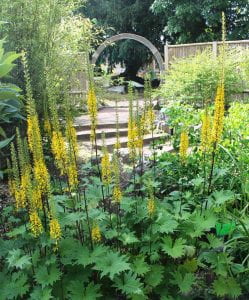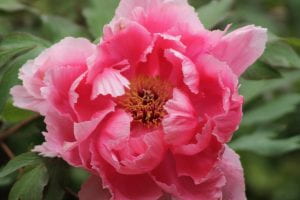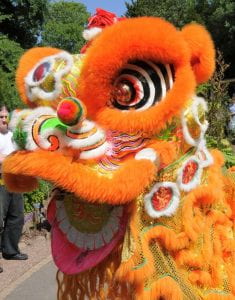By Alice Maltby
Join the Botanic Garden and Bristol Museum and Art Gallery in an Online Festival of music, dance, talks, craft activities, storytelling, meditation, yoga and more. Events will take place during 16 – 23 February 2021.
According to the Chinese Zodiac people born in a year of the Ox are honest, trustworthy, diligent, dependable, strong and determined.
The Festival is in partnership with Avon Chinese School, BESEA TV, Bristol & Avon Chinese Women’s Group, Bristol & West of England China Bureau, Bristol Shaolin Wushu Academy, Bristol Wutan, North Somerset Inter-Cultural Dance Association, South Gloucestershire Chinese Association and University of Bristol Botanic Garden.
Further contributions from Younghe Allison, Joy Cheung, Liz Yee Ling, Eva Wong Nava, Movema, Poh Hooi Teoh and Stella Wang.
 The Chinese Garden in University of Bristol Botanic Garden is a little known slice of China in the heart of Bristol. Created in 2007, it contains a collection of plants used in traditional Chinese herbal medicine. These are set within a space inspired by classical pleasure gardens found in Suzhou. The garden uses rocks, symbolic planting and Chinese garden structures to provide views and encourage contemplation. Key concepts include a bamboo Moon gate, laing ( a pergola clothed with climbing plants) and a contemplative pavilion.
The Chinese Garden in University of Bristol Botanic Garden is a little known slice of China in the heart of Bristol. Created in 2007, it contains a collection of plants used in traditional Chinese herbal medicine. These are set within a space inspired by classical pleasure gardens found in Suzhou. The garden uses rocks, symbolic planting and Chinese garden structures to provide views and encourage contemplation. Key concepts include a bamboo Moon gate, laing ( a pergola clothed with climbing plants) and a contemplative pavilion.
The Chinese Embassy officially opened the teaching area in 2010. A second phase in 2017 saw the construction of a peony garden and tea plant terrace. The garden is a partnership between the Botanic Garden and the Register of Chinese Herbal Medicine (RCHM).
 To celebrate the Festival, the Botanic Garden has created a special online talk which will take place on 22 February 2.0-2.45pm. Tony Harrison, one of the Chinese Garden’s co-founders, will discuss the plants and evolution of the garden. You will hear about the significance of peonies, which are revered in Chinese culture and learn about the tea terrace, planted within the heart of Bristol. Whilst tea-drinking in China dates back thousands of years, the British cuppa has become an iconic symbol firmly in people’s hearts.
To celebrate the Festival, the Botanic Garden has created a special online talk which will take place on 22 February 2.0-2.45pm. Tony Harrison, one of the Chinese Garden’s co-founders, will discuss the plants and evolution of the garden. You will hear about the significance of peonies, which are revered in Chinese culture and learn about the tea terrace, planted within the heart of Bristol. Whilst tea-drinking in China dates back thousands of years, the British cuppa has become an iconic symbol firmly in people’s hearts.
Discover how this educational resource is open to the public and enables visitors to enjoy an environment akin to a traditional Chinese pleasure garden.
The Museum displays a magnificent collection of ceramics and glass featuring many of the enchanting flowers cultivated at the Botanic Garden including magnolias, peonies, camellias and the Sacred Lotus. As we endure this cold spell of weather, I am mindful of the importance of nature to Chinese culture, particularly the key images of the Three Friends of Winter – Prunus, Bamboo and Pine.
Tony Harrison, co-ordinator of the traditional Chinese Medicinal Herb Garden, and herbalist has travelled extensively in China, visiting Chinese herb and classical gardens, and to study Chinese medicine. As a past president of the RCHM he founded the Chinese Garden with Nick Wray, curator of the University Botanic Garden.
To register for this Zoom talk, please click here
Here is a short film introducing the traditional Chinese Herb Garden, its cultural significance and beginning with its links with the Chinese community in Bristol.


